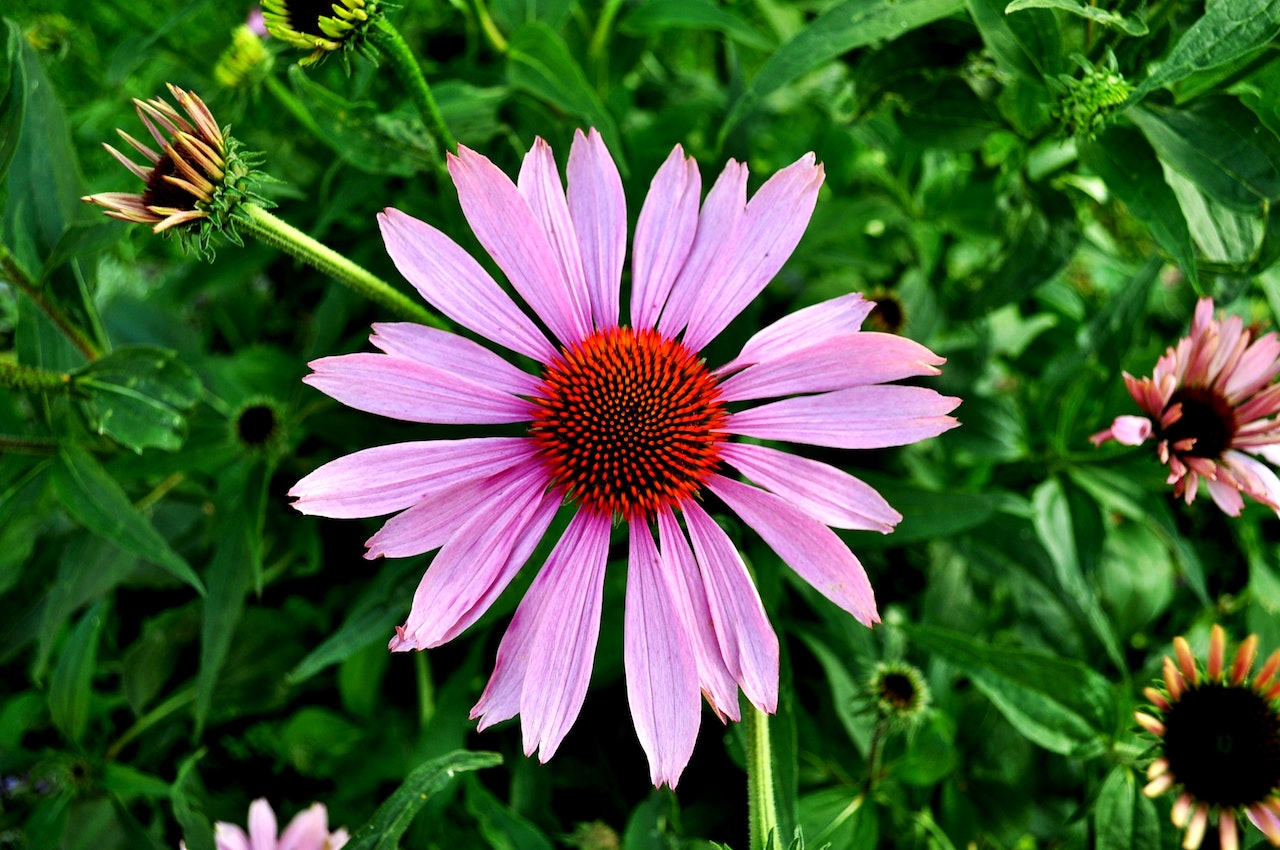10 HERBS THAT HELP BOOST IMMUNITY
by: Remie Longbrake | published: March 26, 2023
The immune system is complex and protects the body from infection and disease, but stress, lack of sleep, poor nutrition, and other factors can wear down our natural defenses.
Let’s take a look at 10 natural and easily obtained herbs that can boost immunity.
1. Ashwagandha
Ashwagandha is a small woody plant native to India and North Africa that is used in Ayurvedic medicine. A clinical trial found that participants who took six milliliters of ashwagandha root extract twice daily for four days showed significant increases in immune cell activity.
A random, double-blind, placebo-controlled trial found that ashwagandha extract significantly improved the immune profile of healthy subjects by modulating their innate and adaptive immune systems.
Researchers concluded that ashwagandha could be used to boost the immune system in people at risk for infection and during widespread infections.
2. Holy Basil
Different from common basil, holy basil is native to India and is a component of Ayurvedic medicine. Research found that holy basil inhibited the growth of multidrug-resistant bacteria that include Staphylococcus, Enterococcus, and Pseudomonas.
A different randomized controlled trial confirmed that holy basil boosted crucial immune factors in the participant’s blood.
3. Black Pepper
One of the most common spices in everyday cooking, black pepper has also shown promise in fighting cancer.
A study confirmed that black pepper extract significantly enhances the cytotoxic activity of natural killer cells, and the study strongly suggested that the extract can exert immunomodulatory and anti-tumor action that can promote the maintenance of a healthy immune system.
Another in vitro study found that the active ingredient in pepper, piperine, boosts the immune system to slow the replication of breast, prostate, and colon cancer cells and could induce cancer cell death.
4. Cinnamon
Cinnamon is a powerful antibacterial and antifungal spice that can help the immune system fight off infection. The aromatic spice can also relieve symptoms of autoimmune disorders.
One study found that cinnamon offers significant relief of rheumatoid arthritis and multiple sclerosis symptoms, and another found that cinnamon and its ingredients can help treat COVID-19 infection.
5. Rosemary
Rosemary contains rosmarinic acid, which has been shown to modulate the immune response to have anti-allergy and decongestant properties. In a study with 50 participants, those given rosmarinic acid had decreased amounts of immune cells in nasal mucus and reduced nasal congestion.
A review of studies concluded that rosemary has significant antimicrobial, anti-inflammatory, antioxidant and neuroprotective properties.
6. Echinacea
Echinacea refers to a group of flowering plants belonging to the daisy family. There are different species, but Echinacea purpurea is the most common.
A review of 16 studies found that echinacea was more effective than a placebo in preventing and treating upper respiratory infections.
Another review, which looked at 14 studies, found that echinacea reduced the odds of catching a cold by almost 60 percent and decreased the symptom duration by nearly 11/2 days.
7. Black Elderberry
Black elderberry, also called Sambucus nigra, refers to several varieties of the sambucus tree, which has clusters of while flowers and black or blue-black betties.
A placebo-controlled, double-blind study of 312 plane travelers concluded that those who took elderberry supplements had significantly reduced cold duration and severity compared with passengers given a placebo instead.
A systematic review of studies from 2018 found that black elderberry supplements were effective in treating the symptoms of upper respiratory infection.
8. Black Cumin Seeds
Black cumin seeds, also called black caraway, have a long history of therapeutic use.
A study identified compounds in black cumin seeds that can positively affect immune signaling pathways, showing that the herb could be used as a dietary supplement to activate immune responses.
A comprehensive review concluded that because of a compound called thymoquinone, black cumin seed promotes immunity and cell survival, acts as an antitoxin, and can lessen the side effects of certain drugs.
9. Garlic
Used as both a spice and food for thousands of years, garlic has been found by researchers to offer a broad range of health benefits, especially as an immune system booster.
A systematic review of studies found that garlic appears to enhance immune function by stimulating certain immune cell types, including macrophages, lymphocytes, and natural killer cells.
Another randomized controlled trial looked for evidence that aged garlic extract could boost human immune function against respiratory infection. While the number of study participants who caught a cold or flu wasn’t significantly different, researcher found that the garlic group experienced a reduction in the number of cold and flu symptoms and in the number of work or school days missed.
10. Astragalus
Astragalus, also known as huangqi, is a root used in ancient Chinese medicine to strengthen and regulate the immune system. It has been used to alleviate many conditions, including respiratory infection, hay fever, asthma, and chronic kidney disease.
A systematic review of studies found that astragalus regulates immune function, promotes the proliferation of immune cells, stimulates the release of cytokines, which control the growth of immune cells, and influences the secretion of immunoglobulin (antibodies) and conduction of immune signals.
The National Institutes of Health (NIH) reported that astragalus “may be safe when used orally and appropriately” and that doses up to 60 grams daily for up to four months have been used without reported adverse effects. Possible but uncommon side effects include rash, itching, nasal symptoms, and stomach discomfort.
The article is not specific health or nutritional advice. Please seek a licensed medical professional for your needs.
